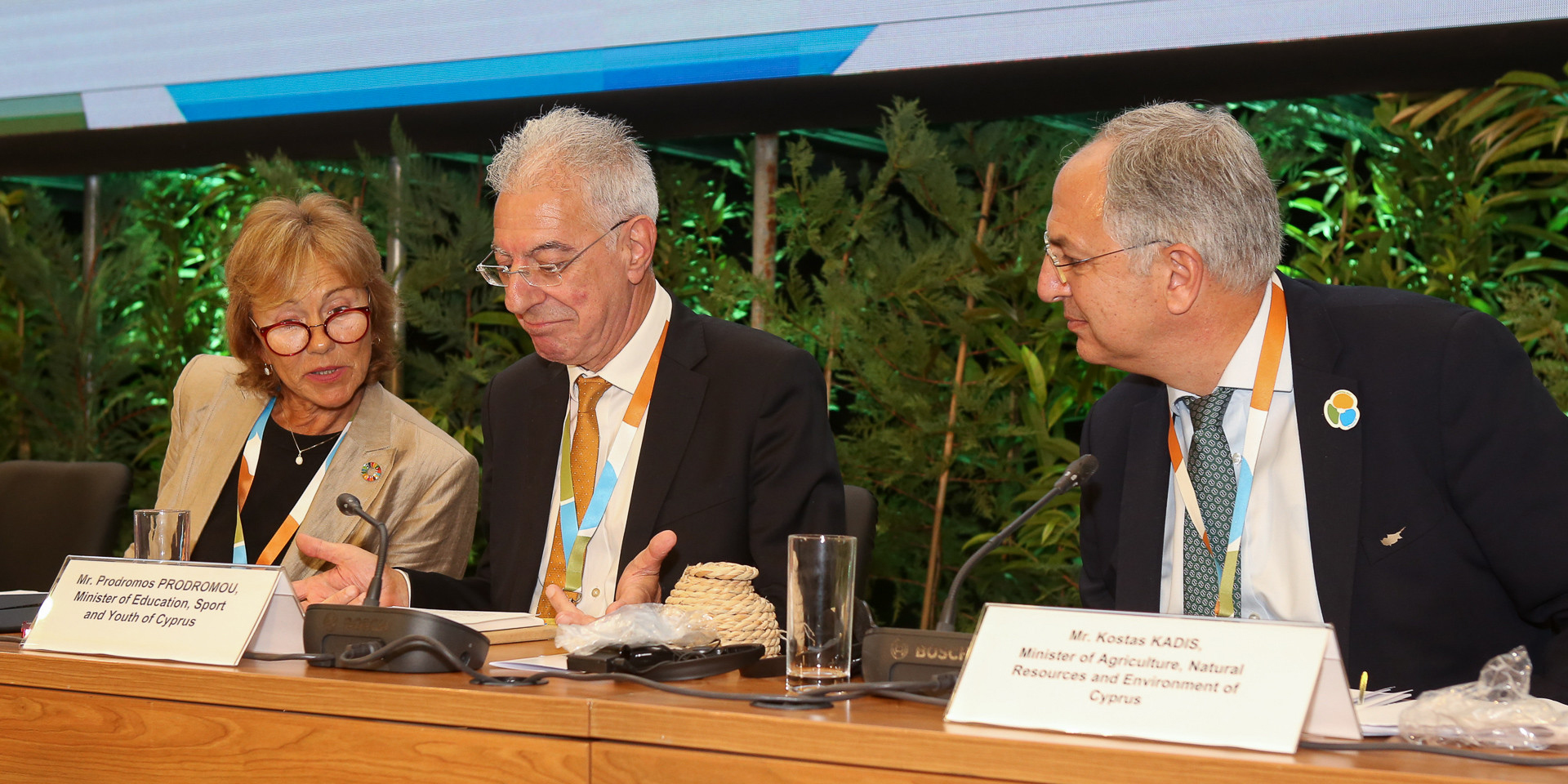The development of national strategies for a greener economy by adopting a sustainable infrastructure and promoting education for sustainable development are among the key topics being discussed during Wednesday’s ninth UNECE Environment for Europe ministerial conference in Nicosia.
Agriculture Minister Costas Kadis noted that most of the countries present at the conference face the same environmental challenges.
Kadis said that the conference is an opportunity for countries to work together and share experiences and best practices at the inter-ministerial level for delivering sustainable solutions in the fields of the environment, circular economy, tourism, infrastructure and education that will transform the planet.
“Our key objective is also common: to fully achieve the sustainable development goals of the twenty thirty (2030) United Nations’ Agenda,” he said.
According to Kadis, discussions during the plenaries and the eight sessions of the conference will provide significant input for important policy documents, the Ministerial Declaration for the Environment, and the Ministerial Statement for Education for Sustainable Development, which will be adopted by all the participating countries by the closure of the conference and provide the supporting framework for developing their national strategies.
One of the thematic areas which the conference will focus on is sustainable infrastructure and “greening the economy” by investing in sustainable infrastructure.
“During this time, when governments around the world focus on recovering their economies and on building their resilience for the current and future crises, it is crucial to ensure that this recovery follows a sustainable path. We need to adopt systemic and life-cycle approaches from the early conceptual and strategic planning stages of infrastructure development and invest in nature-based solutions,” Kadis stressed.
Kadis said such an approach will minimise potential environmental impact accounted for by the development of resource-intensive infrastructure, while at the same time ensure alignment with sustainable development goals.
Meanwhile, the environmental challenges of the tourism sector and ways to support the tourism industry as a main driver for economic development, while working with various stakeholders to adopt circular economy tourism models, will also be discussed during the second area of the conference.
According to Kadis, tourism destination countries like Cyprus, face additional environmental challenges, especially in the sector of waste management.
“The adoption of the circular economy concept across all economic sectors, and especially the tourism sector, and the transition of the business models from linear to circular, create additional opportunities. Circular economy enhances the sectors’ sustainability, productivity, employability and competitiveness, while reducing their environmental footprint,” Kadis added.
For his part, Education Minister Prodromos Prodromou said participants will discuss and adopt policies on education for sustainable development, sustainable infrastructure and sustainable tourism
Prodromou said that the education strategy will focus on achieving the goals of the Global 2030 Agenda and takes into account all other parallel regional and international policies related to quality in education, with the ultimate goal of establishing educational organisations that will empower young people and civil society in sustainability issues.
“We aim at educational organisations, schools and other structures that will support the effort to create sustainable, fair and prosperous societies. We are all experiencing the consequences of environmental degradation and destruction. Collectively, as societies, but also individually as citizens. Education is our hope, but also the driving force for action,” he added.
Meanwhile, a high-level ministerial event on the Mediterranean Strategy on Education for Sustainable Development and its Action Plan towards 2030 will also be held, in an effort to adopt the updated action plan and setting a common course for the countries involved.
“The conference also provides a unique opportunity for interdepartmental and inter-ministerial collaboration, which is the key to confronting the emerging challenges and risks that we are facing as humanity because of climate change. The aim is to strengthen this collaboration by bringing together Education and Environment Ministers, as well as ministers from other fields such as tourism, innovation, infrastructure, foreign affairs etc.,” Kadis explained.
An important role will also be played by young people during the conference, according to Prodromou, who explained that the new implementation framework of UNECE Education for Sustainable Development Strategy 2021-2030 aims to bring together the past with the future by actively engaging young people.
More than 60 youth organisations will participate in the ministerial discussions and define their own role as contributors in designing common policies, Prodromou added.







Click here to change your cookie preferences